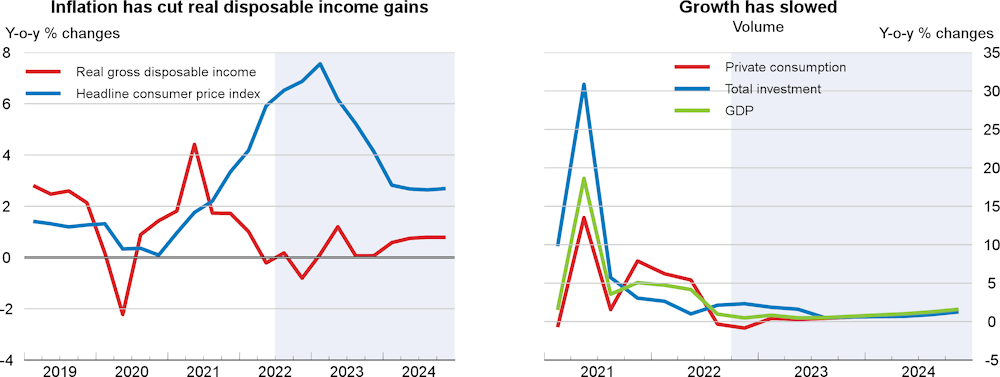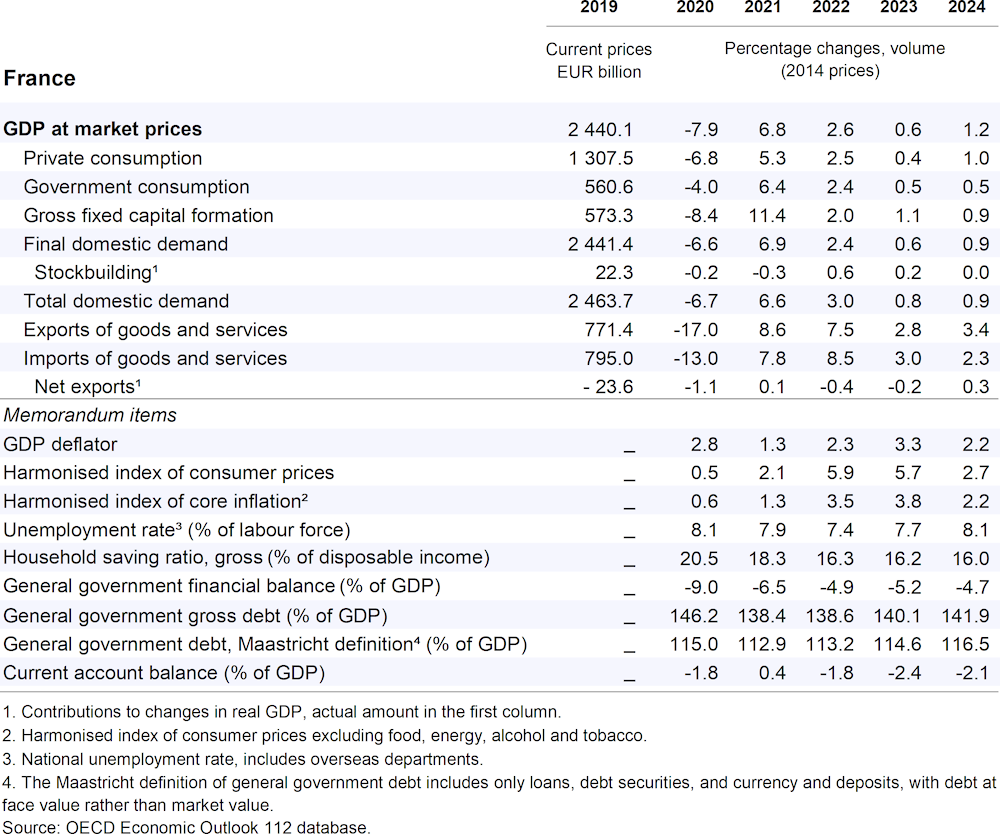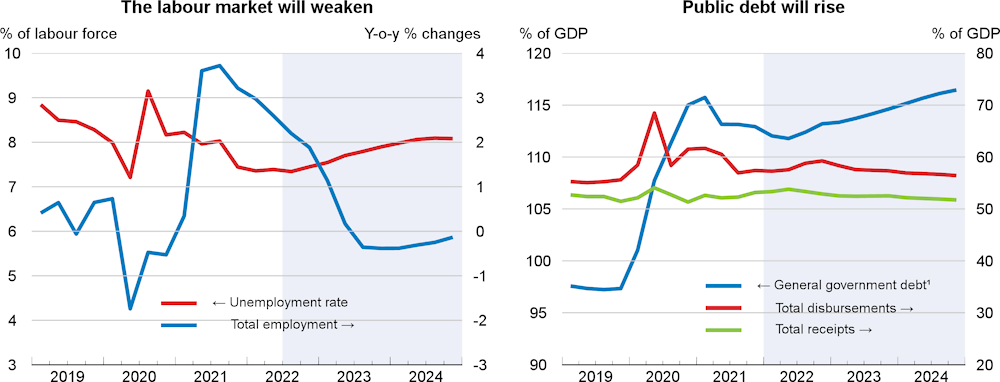Real GDP is projected to grow by 2.6% in 2022, 0.6% in 2023 and 1.2% in 2024. Russia’s invasion of Ukraine, supply chain disruptions and elevated energy prices have dented economic prospects. Inflation is expected to reach 5.9% in 2022, 5.7% in 2023 and 2.7% in 2024, lowering household purchasing power and consumption growth. The decline in business and household confidence, weaker global economic conditions and high uncertainty will hold back investment and exports. Wages are accelerating, owing to recent labour market improvements and the indexation of the minimum wage. Yet, with slowing growth and declining employment, the unemployment rate will rise to 8.1% in 2024.
Fiscal policy will gradually become less supportive. The temporary caps on regulated energy prices and temporary subsidies and cash transfers have smoothed energy price shocks, but these measures are expected to be progressively phased out in 2023-24. Though energy supply remains uncertain, it is crucial to improve the targeting of support measures to reduce fiscal cost, avoid impeding structural change and limit additional inflationary pressures. An ageing population and higher interest rates will weigh on the public finances, raising the need for improved spending efficiency and a reform of the pension system.


